Countries that own the most gold, ranked
Who's stockpiling the most gold?
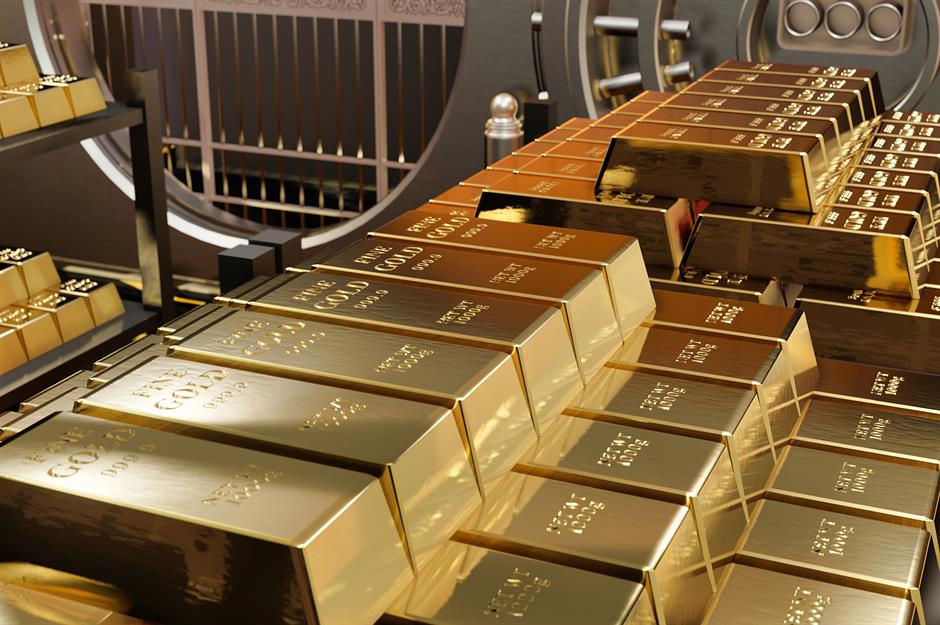
Gold has long been viewed as the ultimate financial asset – and never more so than during times of uncertainty and financial crisis. In fact, on October 30 2024, the price of gold hit a record high, reaching over $2,790 (£2.2k) an ounce.
While we no longer use the gold standard to determine the value of currencies, the precious metal is still incredibly useful and is held by many central banks due to its immunity to political changes and economic shocks. It's also a 'liquid asset', meaning it can be converted to cash if required.
But which countries have the most stashed away? Using the latest data from GoldHub, read on to discover the 30 nations that own the most gold as of the third quarter of 2024, unless otherwise stated.
All dollar amounts in US dollars
30. Sweden: 125.72 tonnes
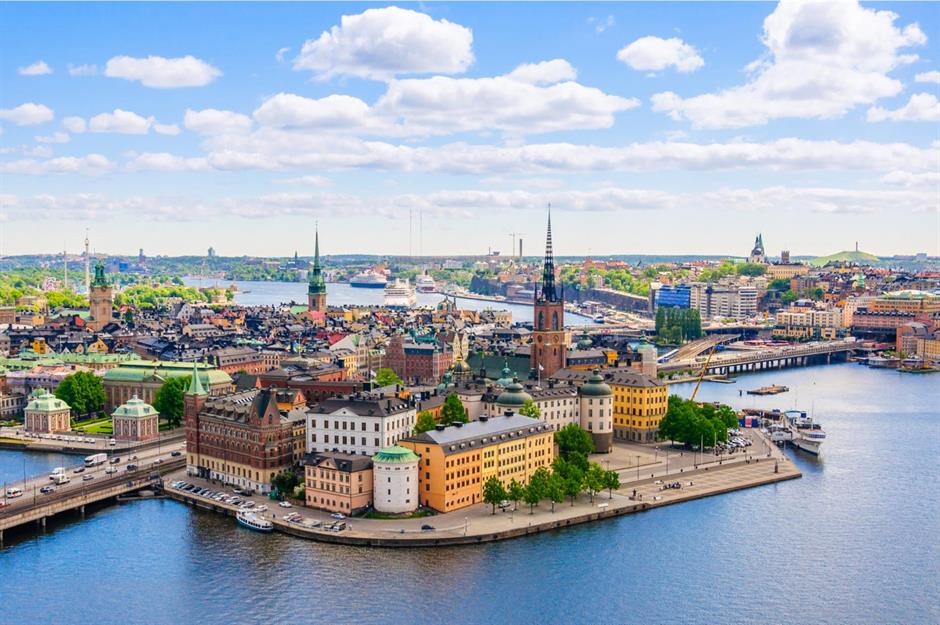
Sweden isn't an obvious choice as a major player in the gold market, but the Scandinavian country actually owns 125.72 tonnes of gold. It doesn't keep all its stocks on home ground, however. As well as in Sweden's central bank – the Riksbank – the country's gold is also reportedly held within the Bank of England, the Bank of Canada, the Federal Reserve Bank in America, and the Swiss National Bank.
The country's reserves have remained the same for well over a decade.
29. Egypt: 126.82 tonnes
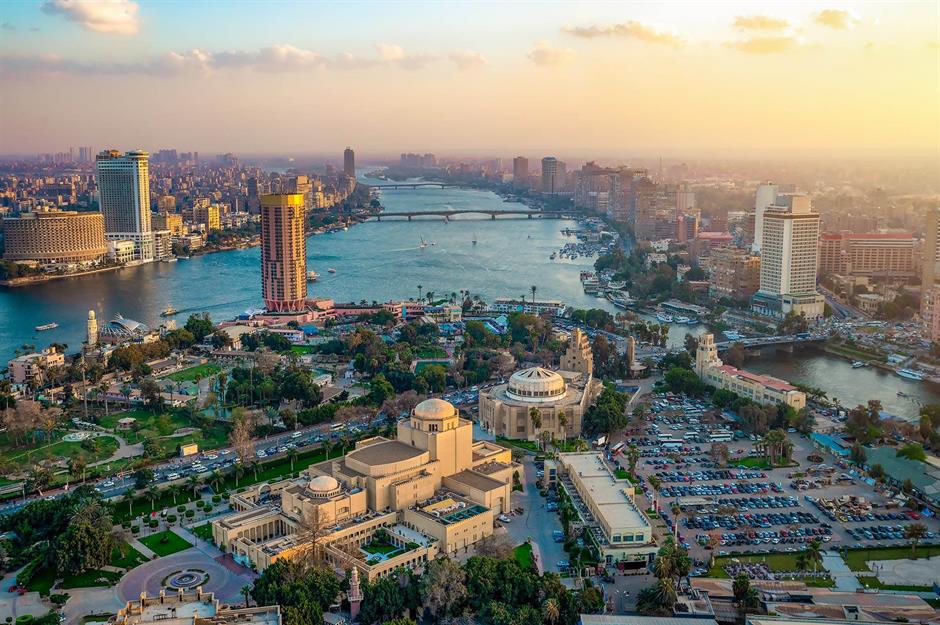
Egyptian purchases of gold bullion and coins jumped significantly in 2023. In 2022, its purchases reached around 19.2 tonnes over the entire year. However, in the first half of 2023 alone it added another 18.6 tonnes in a spending spree reflected in other parts of the Middle East.
By the end of 2023, the country's reserves stood at 126.30 tonnes and have remained at similar levels ever since, numbering 126.82 tonnes as of the third quarter of 2024. Egypt and Sweden return to the top 30 at the expense of Venezuela and Lebanon, with GoldHub no longer including data for the two countries.
28. Philippines: 128.12 tonnes
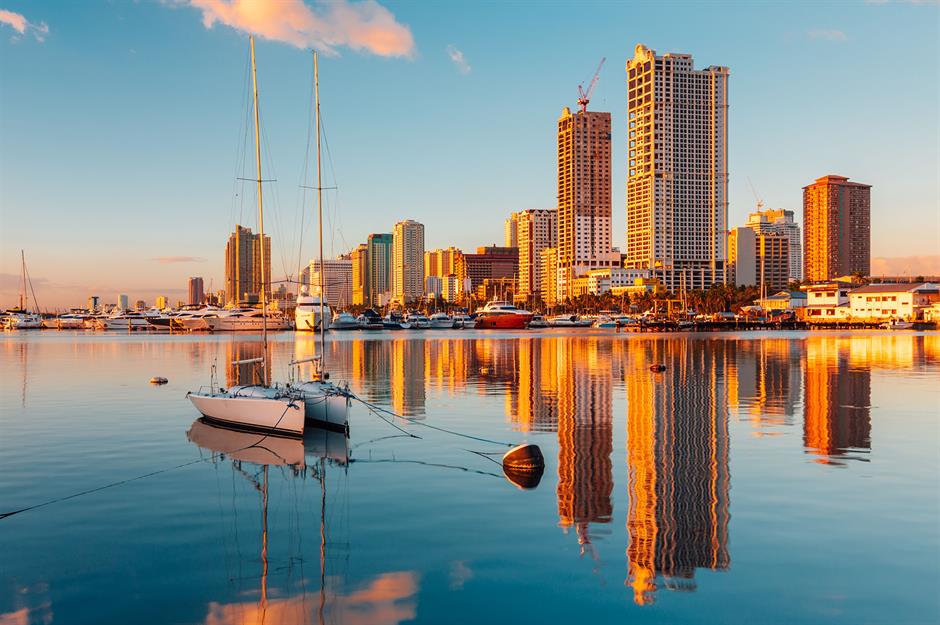
The Philippines is one of Asia's largest gold producers. Although mining is big business there, much of the country's gold is thought to remain untapped. Desperately poor locals hoping to literally strike gold have even been known to undertake dangerous dives in mud-filled swamp mines in search of the precious metal.
The country's gold reserves have dipped in recent months. Although it owned 159.05 tonnes at the end of 2023, it's since been on a selling spree, with significantly reduced reserves of 128.12 tonnes as of the third quarter of 2024. The country's central bank has defended the move, claiming the sale was in response to high market prices.
27. Brazil: 129.65 tonnes
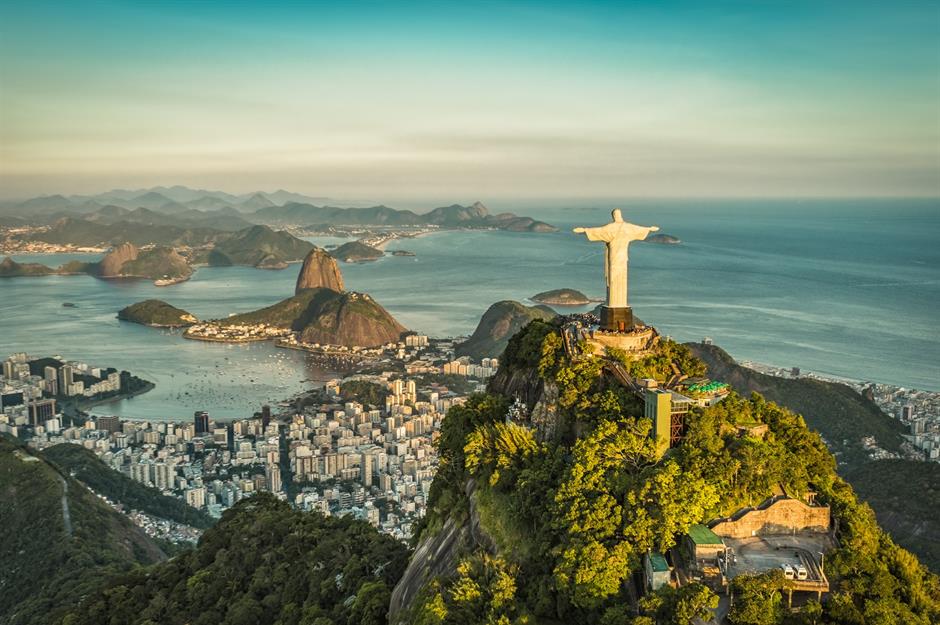
In the second quarter of 2021, Brazil added a considerable 53.75 tonnes of gold to its reserves, almost doubling its hoard and pushing Mexico out of the top 30. The purchase was reportedly Banco Central do Brasil’s largest monthly gold acquisition since at least December 2000.
The move was unsurprising, as the World Gold Council had anticipated that central banks would be net buyers of gold following the precious metal’s stellar performance during the COVID-19 pandemic.
Brazil followed this purchase by buying a further 8.54 tonnes in the third quarter of 2021, and its stockpile has remained consistent ever since.
26. Libya: 146.65 tonnes
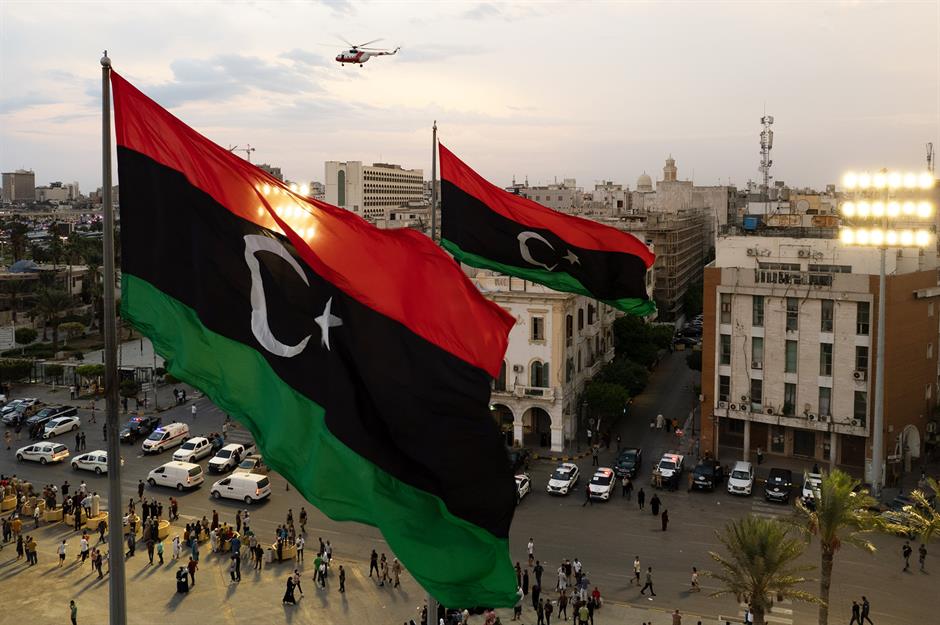
Questions have surrounded Libya's gold reserves, with reports claiming as much as 27 tonnes had disappeared from the country since Muammar Gaddafi's overthrow in 2011. As recently as the first quarter of 2023, the World Gold Council had pegged Libya's gold holding at 116.64 tonnes.
The Central Bank of Libya (CBL) denied the claims and, following an audit, confirmed that the same reserves had been held without change since August 2011. Libya is recognised as holding gold reserves of 146.65 tonnes, according to the most recent data.
25. Iraq: 151.60 tonnes
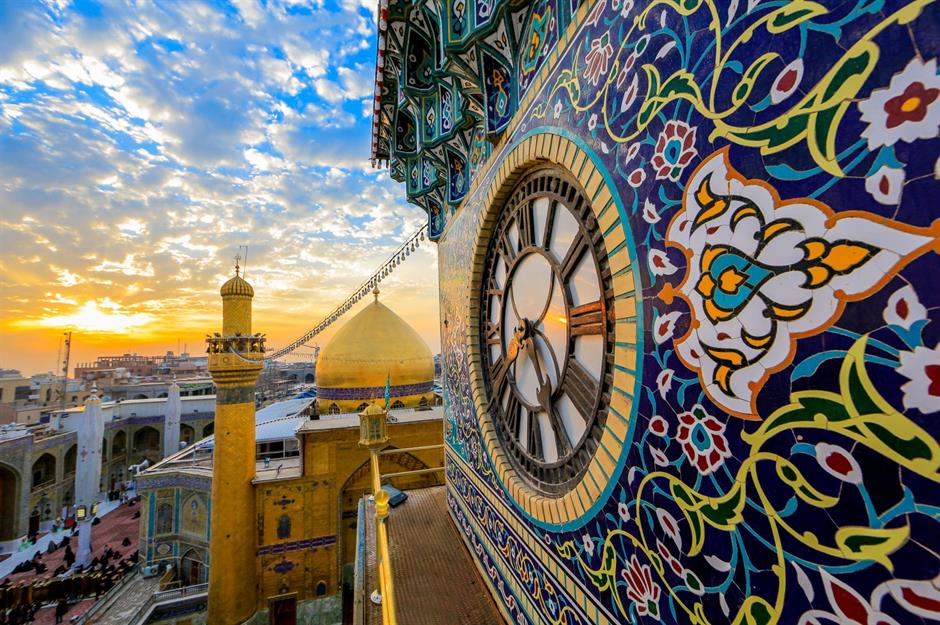
A relative newcomer to the top 30, Iraq increased its gold reserves by a substantial 33.97 tonnes in the first quarter of 2022, marking the largest addition of any country in the world during that period. The Middle Eastern nation has reportedly been busy expanding its reserves of both gold and cash. The Central Bank of Iraq expected the latter to increase from $80 billion (£62.7bn) to $90 billion (£70.5bn) by the end of 2022, a target it achieved.
According to the bank's Deputy Governor Ammar Khalaf, this has been a response to rising oil prices due to Russia's war with Ukraine. The country added more than five tonnes to its stockpile in the final quarter of 2023, bringing Iraq's gold reserves to 138.44 tonnes, and it added a further four tonnes in the first quarter of 2024. By the second quarter of 2024 it held 151.60 tonnes of gold, though data for the third quarter hasn't been made available.
24. Algeria: 173.56 tonnes

Algeria's gold reserves stand at 173.56 tonnes as of the third quarter of 2024. Algeria is also home to a strong gold mining tradition believed to date back to pre-Roman times.
The government has recently taken steps to encourage commercial gold mining on a large scale, as it's thought a great deal of wealth is still hidden beneath its soil.
23. Belgium: 227.40 tonnes

Belgium is holding onto 227.4 tonnes of gold. Most of this is thought to be stored abroad, with some in the Bank of England and some in the Bank of Canada.
There was talk of the country repatriating its stocks, but it's believed the transport and security costs involved in the move were prohibitive, and Belgium was unsure where to store its gold if it were returned to home soil.
22. Singapore: 227.61 tonnes

Those looking for a secure place to store their gold often settle on Singapore. The country hasn't been tarnished by any major corruption scandals, crime rates are low, and taxes are also minimal, while the cost of gold storage is incredibly competitive.
Singapore also has a substantial reserve of gold. By the end of 2023, it owned 230.02 tonnes of the stuff, a significant increase of over 75 tonnes since June 2021. But its reserves have dwindled in recent months; between the first and second quarter of 2024, Singapore's collection fell from 236.60 tonnes to 228.86 tonnes, the second largest decrease of any country in the period, before falling to 227.61 tonnes in the third quarter.
21. Thailand: 234.52 tonnes

Thailand added more than 90 tonnes of gold to its stockpile in the second quarter of 2021, bringing its total reserves to 244.16 tonnes and shifting the country up the gold ownership rankings. The country has recently sold off around 10 tonnes, bringing its current reserves to 234.52 tonnes.
Thailand mines its own gold, and its citizens place a high value on the precious metal. In fact, gold jewellery is arguably more popular in Southeast Asia as a whole than it is anywhere else in the world.
20. Austria: 279.99 tonnes

With just a fraction under 280 tonnes of gold, Austria is in 20th place.
In the past, much of the European nation's stock has been held by the Bank of England. In 2015, however, it was announced that the Austrian National Bank had plans to repatriate much of this back to Vienna. Around half of its reserves are now held domestically, with the other half split between the UK and Switzerland.
19. Spain: 281.58 tonnes
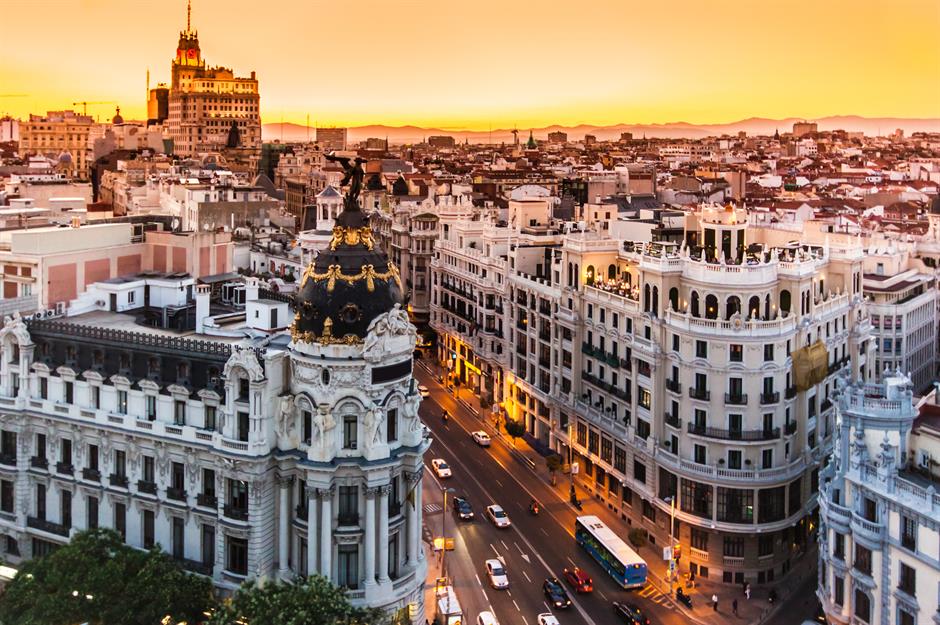
Gold mining has been carried out in Spain since pre-Christian times, and the Romans turned it into a flourishing industry.
There's now a renewed interest in Spanish gold, with a lot of prospector activity being carried out in the hope of striking it lucky. However, that's unlikely to impact heavily on the country's gold reserves, which have remained stable since the start of 2022.
18. Kazakhstan: 285.94 tonnes
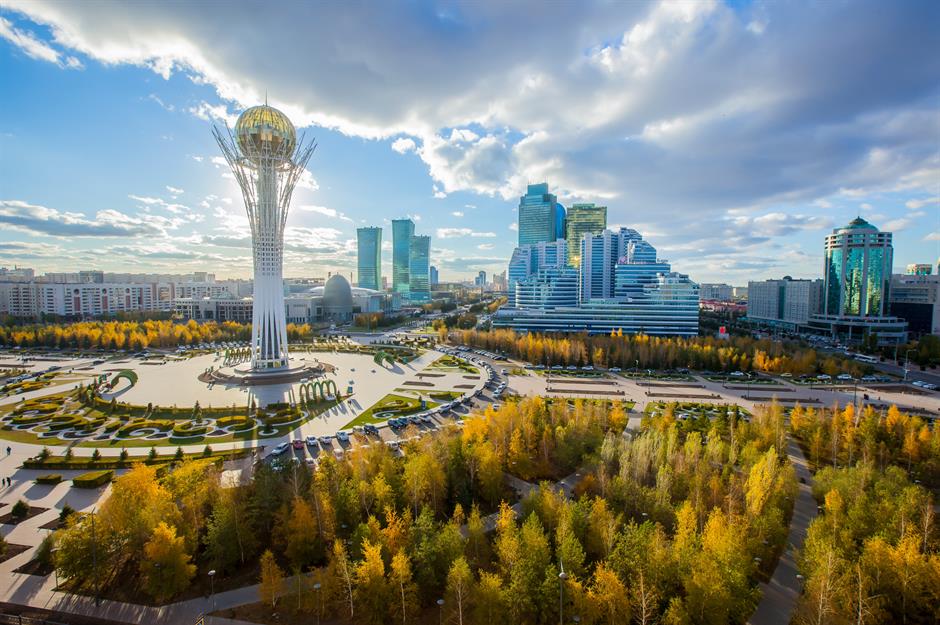
Kazakhstan's National Bank has increased its gold reserves by more than 100 tonnes in the past few years in a bid to reduce the country's reliance on the US dollar and neutralise currency risks.
The land-locked country, which is working to develop its gold mining industry through foreign investors and low government regulation, added an impressive 11.27 tonnes of gold to its stocks in the third quarter of 2021, bringing its total reserves to 402.38 tonnes. But in the first quarter of 2022, it changed course, rapidly selling off 34.26 tonnes to bring its reserves back down to 368.12 tonnes.
Despite later buying back 15.79 tonnes in the first half of 2022, Kazakhstan went on to offload twice as much in the second half of the year. After selling another 19.64 tonnes, the largest decrease of any country in the first quarter of 2023, Kazakhstan had 332.03 tonnes of gold.
That dropped again to 294.24 tonnes by the end of 2023. In the latest twist to the saga, after adding 16.39 tonnes to its reserves in the first quarter of 2024, the nation sold off more gold than any other country in the second quarter and yet more in the third. After this series of U-turns, Kazakhstan's total reserves now sit at 285.94 tonnes.
17. United Kingdom: 310.29 tonnes

Many countries choose to store their gold in the heavily fortified Bank of England vault, which is the second largest in the world after the New York Federal Reserve vault.
The UK has its fair share of gold reserves too, with 310.29 tonnes of the precious metal currently held in its name. Despite the lack of active gold mines in the UK, it's long been seen as the centre of the wholesale gold market and is a major importer and exporter of the metal.
However, this is a much-reduced reserve after the nation's Chancellor at the time (and later Prime Minister) Gordon Brown made the controversial decision to sell more than half of the UK's gold reserves – around 400 tonnes – for $3.5 billion in 1999. That's the equivalent of $6.6 billion (£5.2bn) in today's money. The price of gold skyrocketed in the years that followed and many believe it was the wrong time to sell.
16. Saudi Arabia: 323.07 tonnes

The oil-rich nation of Saudi Arabia has the second-highest gold reserves in the Middle East, according to data from the third quarter of 2024, with 323.07 tonnes of the precious metal.
Saudi Arabia is also committed to boosting its gold mining industry as part of plans to diversify its economic base and rely less heavily on oil.
Although overshadowed by oil, this is not a new endeavour, as archaeological studies show that gold was mined in the country up to 5,000 years ago.
15. Uzbekistan: 373.86 tonnes
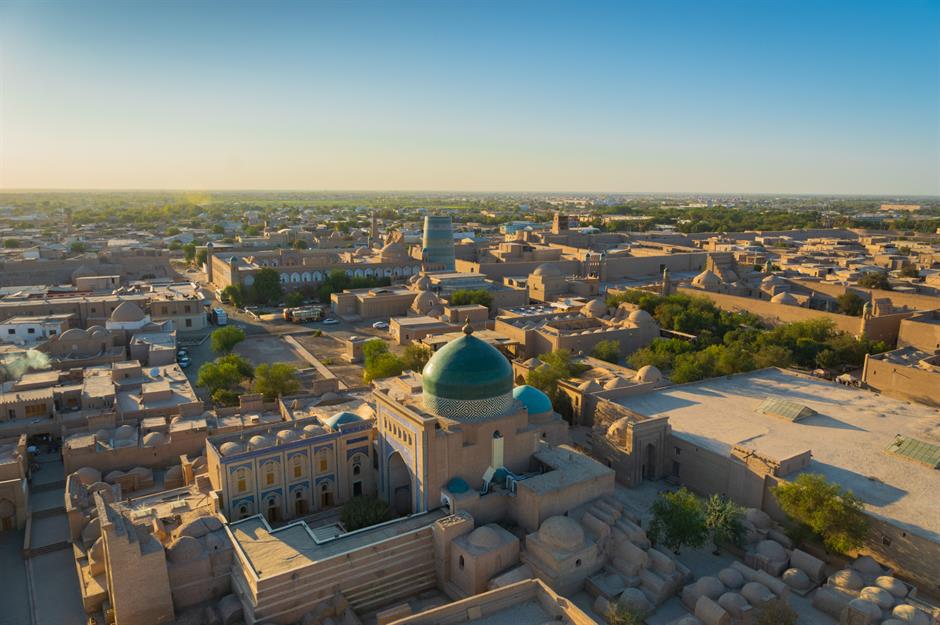
A mineral-rich country, Uzbekistan has a wealth of resources, including oil, natural gas, gold, silver, and uranium. As well as being a top producer of the precious metal, the country reportedly planned to continue increasing its gold reserves to 430 tonnes by 2024.
However, in July 2020, the country became the world's largest seller of gold as it pinned its hopes of economic recovery from the COVID-19 pandemic on it. In fact, in the first eight months of 2020, Uzbekistan sold $5.8 billion (£4.5bn) of gold, nearly a billion dollars more than the $4.9 billion (£3.8bn) it sold throughout the whole of 2019.
The country then changed tack at the beginning of 2021 and was one of four nations leading a gold purchasing drive that February. Uzbekistan added over five tonnes to its reserves in the third quarter of 2023 but sold over 25 tonnes of gold in the following months. It added 16.7 tonnes to its holdings in the third quarter of 2024, bringing its current reserves to 373.86 tonnes.
14. Portugal: 382.66 tonnes
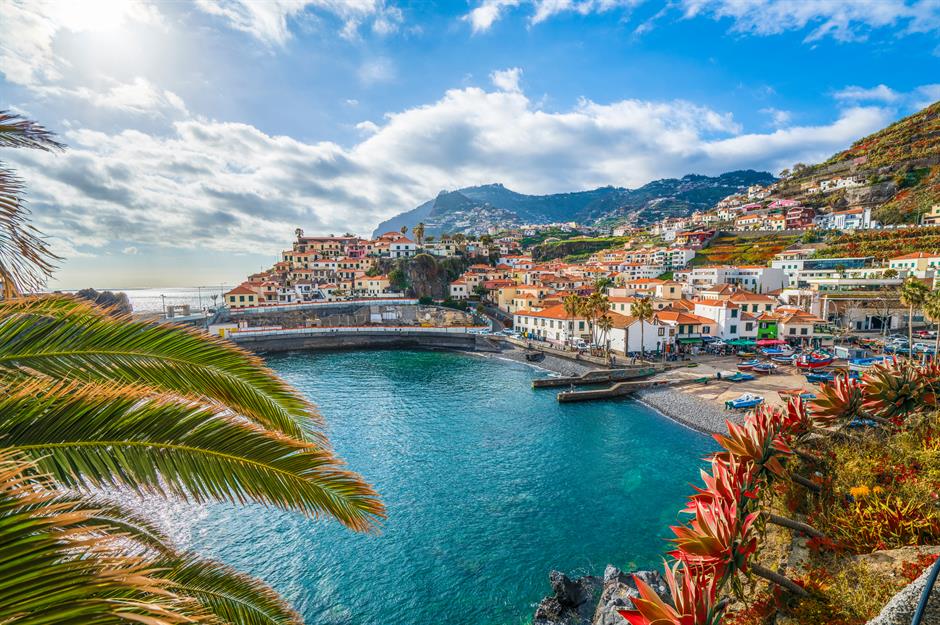
Portugal currently has 382.66 tonnes of gold, a modest increase since the previous quarter. However, the country has battled economic instability, and there have been calls for it to sell off some of its gold reserves to reduce its national debt, which has been hovering around the $290 billion (£232bn) mark for the past few years.
However, strict regulations make this easier said than done, and for now, Portugal is holding onto its precious asset.
13. Poland: 419.70 tonnes
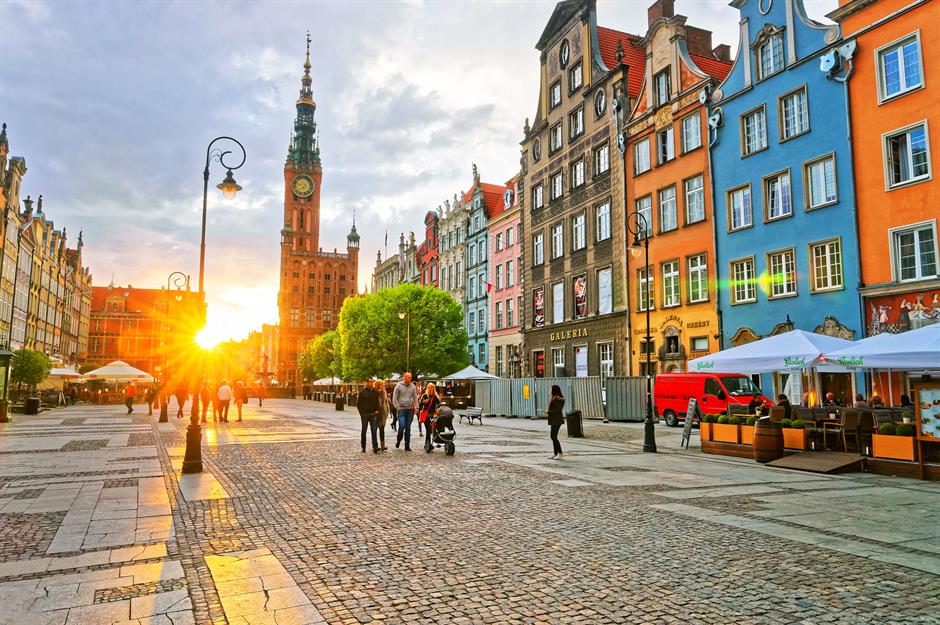
In November 2019, Bloomberg reported that Poland collected $5.2 billion worth of Polish-owned gold bars from the Bank of England, the equivalent of $6.4 billion (£5bn) today. The bars, which had reportedly been stored there since World War II to hide them from the Nazis, were transported to secret vaults back in Poland.
Then, in 2021, Poland expanded its gold reserves to protect domestic currency values against the rising dollar, bringing them to their highest level in 35 years at 231.77 tonnes. In March 2021, Reuters reported that Poland’s central bank wanted to buy another 100 tonnes of gold over the coming year, following a trend of Eastern European countries looking to reduce their reliance on assets such as the US dollar.
In line with this plan, the Polish government increased its stocks by a massive 56.63 tonnes in the third quarter of 2023, the second-highest increase of any country. It's since added even more to its reserves, with its current total standing at 419.70 tonnes.
12. Taiwan: 422.69 tonnes

Taiwan is currently stockpiling 422.69 tonnes of gold.
In 2019, it dipped into its gold reserves to produce coins commemorating the inauguration of President Tsai Ing-wen as chairperson of the Democratic Progressive Party. The central bank made 10,000 gold coins and 50,000 silver coins to mark the occasion, which took place in May 2020.
According to the latest data, Taiwan sold off 1.25 tonnes of its gold in the first quarter of 2024 but added a modest 0.31 tonnes to its reserves in the third quarter.
11. Türkiye: 595.37 tonnes
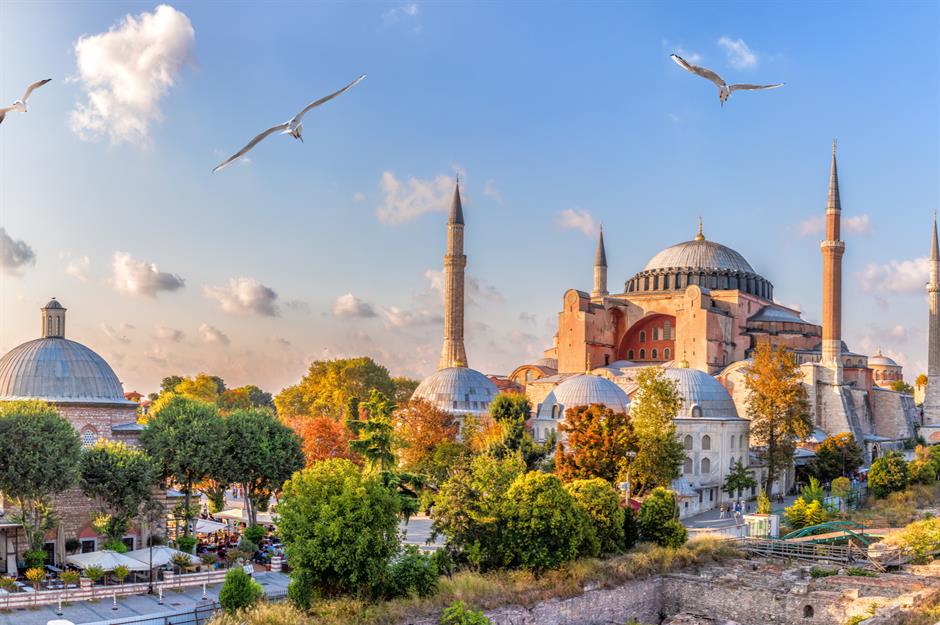
Türkiye has seen many changes to its gold reserves in recent years, with the figure falling by more than 200 tonnes between 2017 and 2019. The country then went on a buying spree due to concerns over its relationship with the US and a year of crisis for the nation's currency, the lira, and ended up with 716 tonnes of gold in the last quarter of 2020.
It then led the global drive to sell off gold during the pandemic. By the end of 2021, the country had 392.80 tonnes of gold left.
But this number has since increased, with Türkiye adding 100.44 tonnes to its stocks in the last six months of 2023. It followed this by buying more than 30 tonnes of gold in the first quarter of 2024, an additional 14.63 tonnes in the second quarter, and a further 10.44 tonnes in the third quarter. Its reserves now sit at 595.37 tonnes.
10. Netherlands: 612.45 tonnes
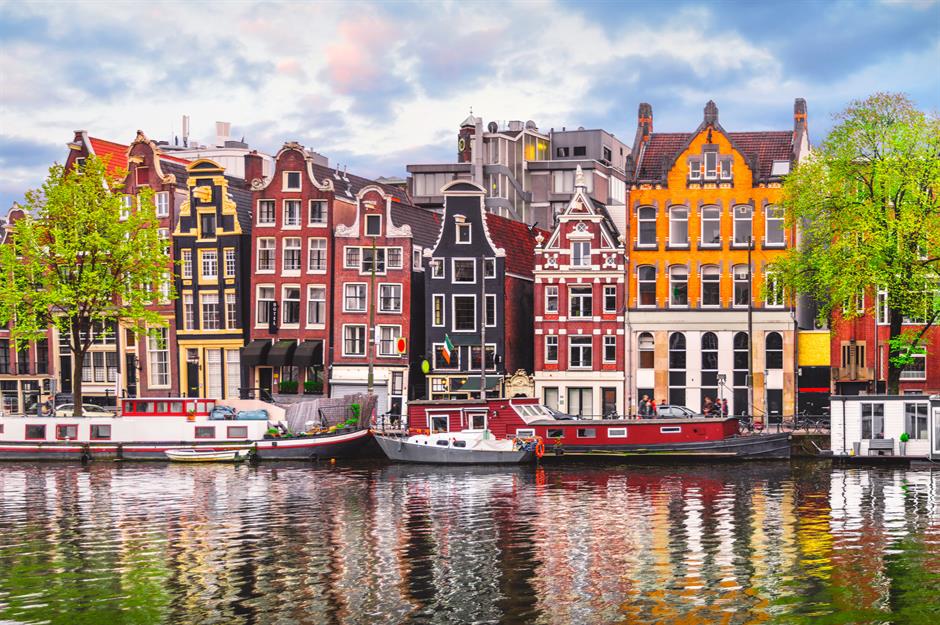
The Netherlands takes the number 10 spot in the rankings, with 612.45 tonnes of gold in its reserves.
In October 2019, it was reported that the Dutch central bank would transport 14,000 gold bars, weighing a total of 175 tonnes, to a temporary location in Haarlem before permanently moving them to the DNB Cash Centre in Zeist.
A similar convoy mission occurred in October 2020 when armed guards, helicopters, and forklifts moved 200 tonnes of gold from Amsterdam’s Dutch central bank to the same vault in Haarlem. The meticulously guarded shipment contained gold worth around €10 billion ($12bn/£9bn) and an estimated €4.5 billion ($5bn/£4bn) in bills.
9. Japan: 845.97 tonnes
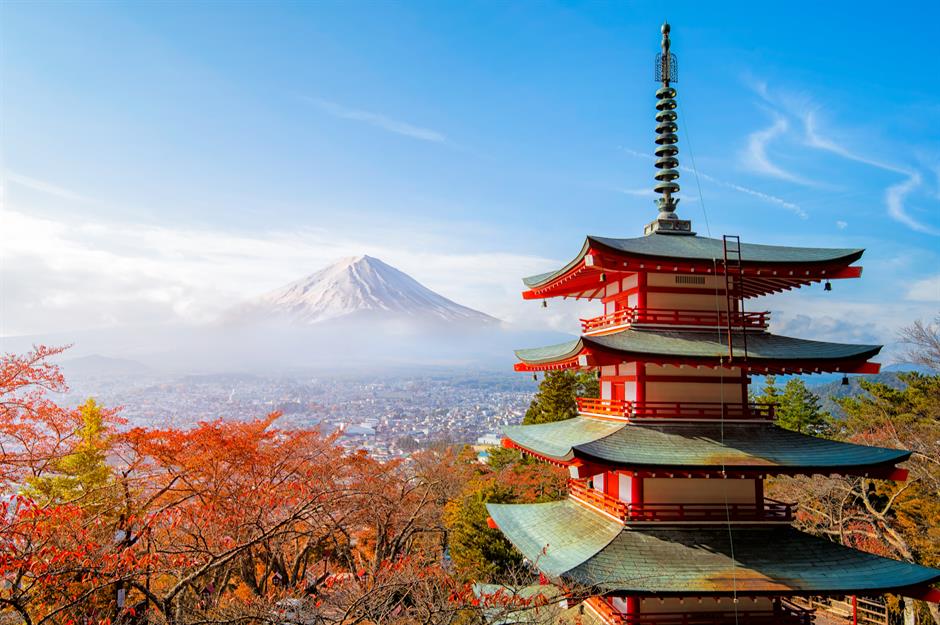
There's a jump of more than 200 tonnes from the Netherlands' stock of gold to that of Japan, which currently holds 845.97 tonnes. In December 2020, 80 tonnes of gold used for minting coins were sold to a different arm of the government as the country explored ways to fund its enormous COVID-19 stimulus package.
The country also has a rich vein of gold running through its land, which has been mined on a small scale for centuries. Recent exploratory gold searches have proved successful, and Japan is now looking to exploit these reserves further.
8. India: 853.63 tonnes

India's gold hoard has increased by over 180 tonnes in the past few years. The country also has high household reserves, particularly in the form of gold jewellery.
Although India does have a small gold mining industry, it can't support the national demand, and most of its precious yellow metal is bought from abroad. India is another country that purchased gold at the beginning of 2021, when most nations continued to sell amid the COVID-19 pandemic. Its ever-expanding reserve of gold currently weighs in at 853.63 tonnes.
7. Switzerland: 1,039.94 tonnes

The gold stocks move into four figures now, with Switzerland holding 1,039.94 tonnes according to the most recent available data. Most of this gold is held on home soil, but some is stored at the Bank of England and the Bank of Canada.
In 2014, a referendum was held to decide whether the Swiss National Bank (SNB) should expand its gold reserves from 7% to 20%. The status quo prevailed, with 78% of voters opposed to the SNB increasing its share.
6. China: 2,264.32 tonnes

China has 2,264.32 tonnes of gold in its reserves, marking a significant increase of around 200 tonnes since the last quarter of 2022. It's also the world's biggest gold producer, accounting for around 10% of total global production.
The local demand for gold has been boosted by the burgeoning wealth of its growing middle class – and it's likely the numbers will keep climbing. China has reportedly been stepping up its gold imports from Russia, adding an additional 121.93 tonnes to its stocks in the last six months of 2023 – the largest increase of any country at the time.
In fact, China has been "buying gold like there's no tomorrow", according to The New York Times. As the Chinese real estate sector continues to struggle, many people treat gold as a safe investment. However, it's also been suggested that the Chinese government is stockpiling gold in response to the global sanctions imposed on Russia in the wake of its war in Ukraine, sparking fears it's trying to protect its economy as it prepares for a potential invasion of Taiwan.
5. Russia: 2,335.85 tonnes
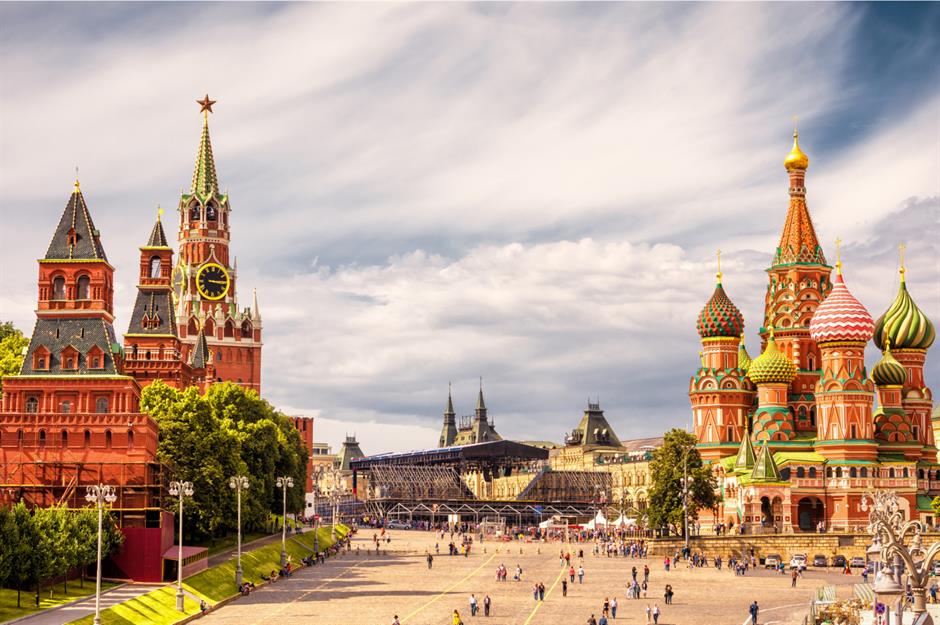
Speaking of Russia: in a departure from previous rankings, Goldhub has chosen not to include data for the Russian Federation in its latest report, listing the nation's known assets as 0.00 tonnes. However, the heavily sanctioned nation has been on a buying spree recently, and the rankings for the second quarter of 2024 place its gold reserves at 2,335.85 tonnes, which puts it in fifth place.
In fact, Russia has spent around $40 billion (£32bn) over the past five years to boost its gold reserves. This has seen it overtake China in the rankings and reduce its reliance on the US dollar. It also has a billion-dollar gold mining industry, so it doesn’t need to rely on imports. This is just as well, as sanctions have pushed the country out of the global gold trade. For example, London has banned all bars from Russian refineries, while the US Senate has prohibited citizens from making transactions involving Russian gold.
As the ruble crashes in value, some analysts have suggested the country could return to a gold standard system to stabilise its economy.
4. France: 2,436.94 tonnes
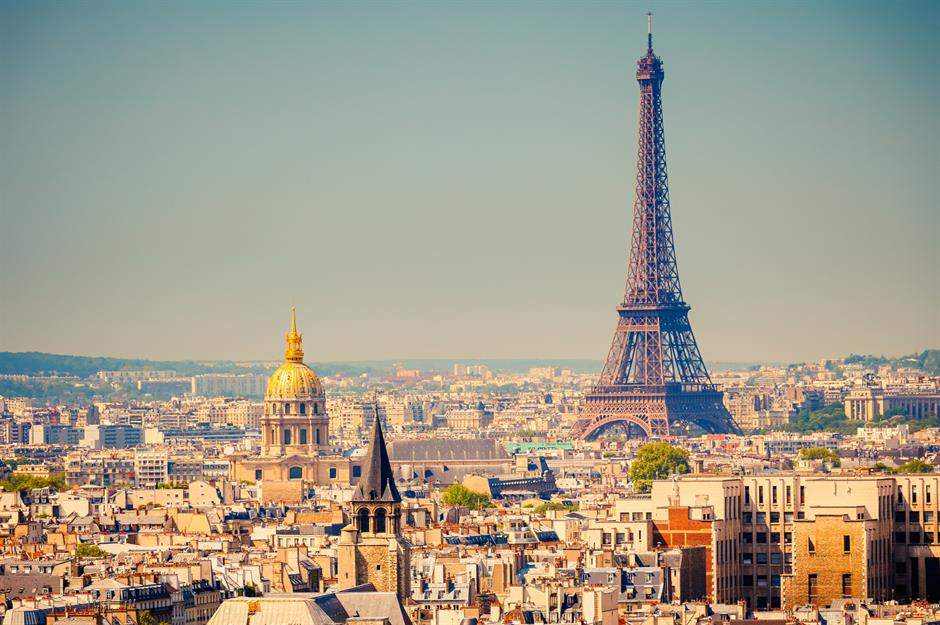
France has stockpiled 2,436.94 tonnes of gold, much of which was reportedly acquired during the 1950s and 1960s. It's further increased its stocks slowly but surely over the last few years, but its reserves dipped fractionally from 2,436.97 in the latest quarter.
Although some of its reserves are held abroad, most of the nation's gold is said to be held in vaults under the Banque de France in Paris. A few hundred tonnes of French gold were sold off earlier this century, but stocks have remained relatively stable since around 2009.
3. Italy: 2,451.84 tonnes

Italy holds slightly more gold than France. Unlike most countries, where the gold reserves are owned by the state and managed by their central banks, Italy’s gold is owned by the Banca d’Italia and held in vaults in Rome as well as at the Swiss National Bank, the Federal Reserve Bank in New York, and the Bank of England.
The Italian government made headlines in February 2019 when it said it would "not sell a gram" of its gold reserves to fill budget holes. True to its word, the country's stocks have remained the same.
2. Germany: 3,351.53 tonnes

Germany is the second-largest hoarder of gold in the world, with 3,351.53 tonnes of the stuff, a small decrease from the 3,352.31 tonnes it owned at the start of 2024. Concern over its gold falling under Soviet control during the Cold War led to the stockpile being spread around the world.
It was thought to be divided between the Federal Reserve Bank in New York, the Bank of England, and the Banque de France. Between 2013 and 2017, at least half of it was returned home to Frankfurt.
1. USA: 8,133.46 tonnes

The USA continues to sit on the largest hoard of gold in the world, boasting a staggering 8,133.46 tonnes. That's almost as much gold as the stockpiles of Germany, Italy, and France combined.
Most of this gold is thought to be held in depositories across America, such as the United States Bullion Depository, more commonly known as Fort Knox.
Now discover 18 economies that are rapidly growing and 12 that are shrinking fast
Updated by Alice Cattley
Comments
Be the first to comment
Do you want to comment on this article? You need to be signed in for this feature